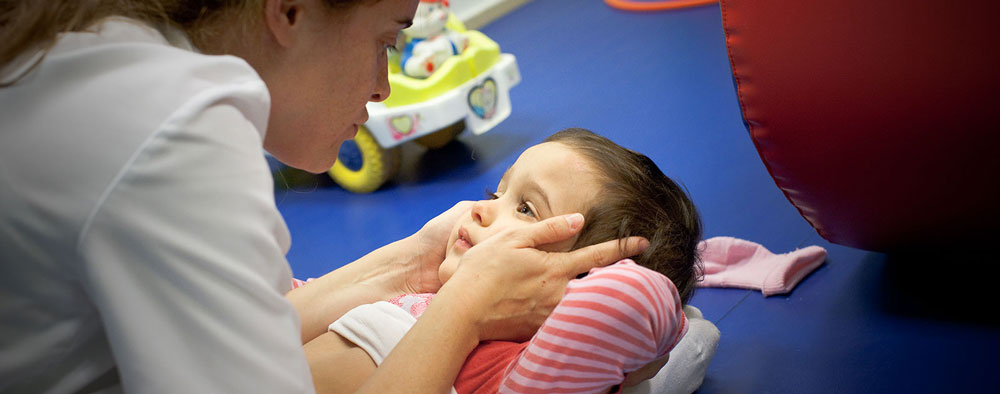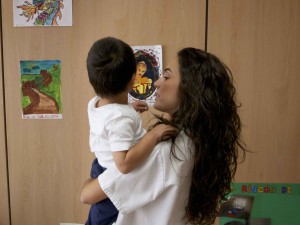
The Children’s Rehabilitation Units provide personal outpatient rehabilitation to patients with:
-Secondary disorders and delays in psychomotor development, prematurity, low birth weight, genetic disorders, delivery and after-birth complications.
-Cerebral palsy.
-Acquired brain injury: trauma, central nervous system infections (meningitis and encephalitis).
-Sequelae of childhood cancer or cancer treatment.
Depending on the patient’s needs, rehabilitation programmes include one or more areas: physiotherapy, occupational therapy, speech-language therapy, neuropsychology.
Early learning
Our early treatments help mitigate developmental deficits. Our programmes are designed to help children achieve the best developmental outcome through sensory, psycho-emotional, motor, and language stimulation. Early stimulation aims at promoting the developmental delayed child’s independence and improving their social and learning skills.
Physiotherapy
We help patients meet normal motor development with Vojta or Bobath therapies, especially recommended for children who need brain rehabilitation treatment.
Myofunctional therapy
Myofunctional therapy is the treatment of dysfunctions that affect phonation or speech articulation, chewing and swallowing patterns. It treats orofacial muscle imbalances.
Speech-Language therapy
The speech-language therapy provided at the Children’s Units of the Menni Brain Damage Network treats speech, voice, and language disorders, whether congenital or acquired. Also, we work on the design of alternative communication systems and pre-language stimulation.
Gaining independence
Self-care activities such as grooming, getting dressed, eating, or bowel and bladder management can be difficult for brain-impaired children. Occupational therapy facilitates maximum independence in these activities of daily living. Sometimes, home and school adaptations may be needed. We give advice and training to overcome these barriers, too.
Neuropsychological assessment (cognition, behaviour, psychological state)
We identify the patient’s deficits and define the interventions necessary to help reduce or compensate for those deficits in order to improve the child’s performance in school and help them carry out activities in everyday life. Also, advice is given to the child’s family and school and an intervention plan is developed when learning problems are detected.
Intervention for behaviour problems
We devise and implement programmes that help children experiencing disruptive behaviour, oppositional defiant disorder, aggressive conduct disorder, etc.
Assistance to the child’s family
The relatives of a child with brain injury must face the new situation and the changes it brings about in their own lives. The Menni Network provides information and support to families affected by childhood-acquired brain injury. We help them manage the sequelae, become helpful caregivers, and be emotionally prepared to support the child in their rehabilitation process.

